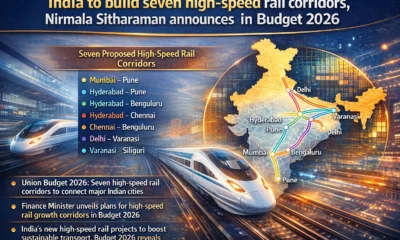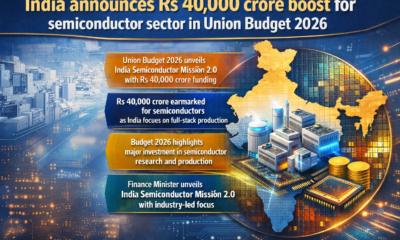Latest business news
GST on electric vehicles slashed to 5 per cent from 12 per cent

India News
Union Budget 2026 highlights: Nirmala Sitharaman Raises Capex to Rs 12.2 Lakh Cr, West Bengal Gets Major Allocation
Finance Minister Nirmala Sitharaman is presenting the Union Budget 2026 in Parliament today. Follow this space for live updates, key announcements, and policy insights.
India News
Union budget 2026 to be presented on Sunday with special trading session
The Union Budget 2026 will be presented on a Sunday for the first time in over two decades, with NSE and BSE announcing special trading sessions for the day.
India News
Modi says right time to invest in Indian shipping sector; meets global CEOs
-

 India News3 hours ago
India News3 hours agoDevendra Fadnavis seeks CBI probe into Ajit Pawar plane crash
-

 LATEST SPORTS NEWS2 hours ago
LATEST SPORTS NEWS2 hours agoICC Men’s T20 World Cup 2026: South Africa outclass India with smart slower-ball strategy in Super 8
-

 India News2 hours ago
India News2 hours agoJNU protest turns violent as Left and Right student groups trade charges
-

 India News2 hours ago
India News2 hours agoWorld praised India’s AI potential at AI Impact Summit, says PM Modi

















